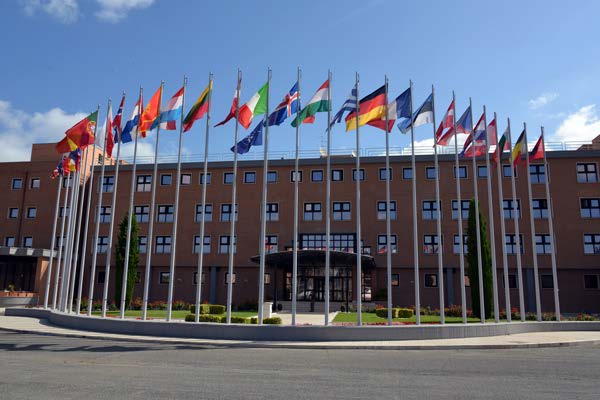Mobilizing Insights in Defence and Security (MINDS) – Annual report 2019-2020

Table of contents
- Message from the Assistant Deputy Minister (Policy)
- Executive summary
- Strong, Secure, Engaged
- The MINDS Program
- First year in review
- What’s Next for MINDS?
- Stay in Touch!
- Annex A: MINDS Policy Challenges for FY 2019-20
- Annex B: Expert Briefing Series
- Annex C: Funding Results for Targeted Engagement Grants
- Annex D: Funding Results for Collaborative Networks
Message from the Assistant Deputy Minister (Policy)
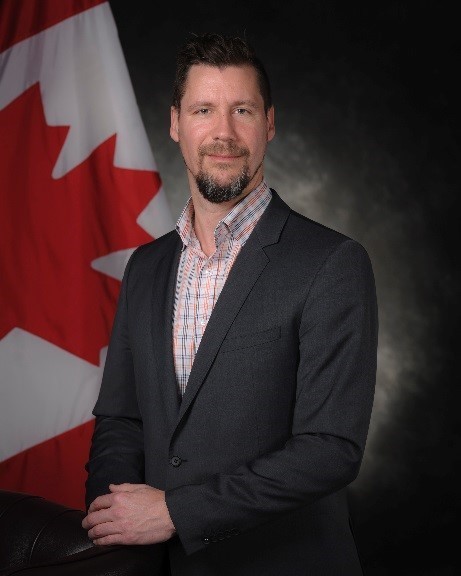
I am very pleased to share the inaugural annual report for the Mobilizing Insights in Defence and Security (MINDS) program. As you will see in the pages that follow, MINDS moved quickly in its first year to establish a strong foothold and has proven itself flexible and adaptable as it moves out on its mission to transform and bring to new levels the Defence Team’s engagement with the expert community.
Launched in summer 2019, MINDS responds to the commitment in Strong, Secure, Engaged (SSE) to strengthen the foundation of the Department of National Defence and Canadian Armed Forces’ (DND/CAF) evidenced-based policy-making by increasing collaboration with academia and other experts.
MINDS was founded on the idea that policy and decision making are strengthened when assumptions are challenged and diverse viewpoints are considered. To bring this idea to life, early efforts have been on establishing two preconditions for success: a broadened reach to ensure access to a variety of voices and opinions; and a strengthened sense of trust between the Defence Team and the expert community to allow for open communication. Achieving these ends requires a culture shift within both the Defence Team and the expert community – one that creates a reflex among decision makers to seek outside advice and sees the expert community offer timely and relevant research. The MINDS team has laid the foundation for this cultural change and we are well on our way to achieving these goals.
That said, throughout this year, the defence and security environment evolved considerably, offering many lessons learned and presenting new challenges and opportunities. MINDS continues to adapt to these changes, and reflect them in its ongoing work. I am proud of what MINDS has achieved and look forward to seeing it grow and cement its role as an indispensable partner in tackling the Defence Team’s current and evolving priorities. The COVID-19 crisis and the myriad changes it brought with it have underscored that now, more than ever, collaboration with external expertise is necessary to help understand, navigate and respond to a rapidly changing world. MINDS is uniquely positioned to support the Defence Team in its efforts to better understand and adapt to these changes.
Peter Hammerschmidt
Assistant Deputy Minister (Policy)
Department of National Defence
Executive Summary
Building on the past to move Defence and Security forward
It has been an exciting first year for MINDS. This report outlines the program’s journey to date, highlighting key accomplishments and setting a course for the year to come. This inaugural year was critical to setting the program up for success and establishing MINDS as a reliable source for external expertise for the Defence Team as a whole; the next will be about building on this success and continuing to respond to the Defence Team’s evolving needs and priorities.
MINDS was not immune to the effects of COVID-19, but continued to promote collaboration between the Defence Team and the expert community by utilizing technology to ensure the program could adapt and continue to progress during this period of uncertainty. We are committed to continuing to adapt to this new reality and maintain the momentum built over the first year.
Highlights from the first year of activities include:
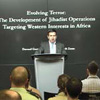
Connecting the Defence Team with leading experts to hep better understand how to tackle complex challenges faced by DND/CAF, through the Expert Briefing Series, including a symposium on hybrid warfare and briefings on sexual misconduct in the CAF.
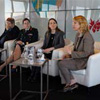
Contributing to the funding of 49 grant applications, including conferences on defence procurement and modernizing North American defence, and research on CAF recruitment and hybrid warfare.

Establishing three-year partnerships with three Collaborative Networks comprised of multidisciplinary teams of distinguished defence and security experts from across Canada and abroad.

Fostering the next generation of defence and security scholars through $600,000 in research awards and supplements at the master’s, doctoral and postdoctoral levels, including $35,000 earmarked specifically for Indigenous students.

Responding to urgent Defence Team requirements for research on defence intelligence activities and initiatives in support of international peace and security.
Strong, Secure, Engaged
Transforming expert outreach
Collaboration with academia and other experts not only strengthens the foundation of evidence-based defence policy-making, but it will also help drive innovation and develop future thought leaders.
Released in June 2017, Strong, Secure, Engaged (SSE) set out Canada’s vision and approach to successfully navigating current and future national, continental, and international security environments. Through a long-term funding commitment to the CAF, SSE aims to reinforce the ability of DND/CAF to respond to modern defence and security challenges with agility and dynamism.
As outlined in SSE, the ‘Anticipate, Adapt, Act’ approach to defence serves to implement this vision. Effectively ‘anticipating’ changes in the security environment demands a strengthening of evidence-based policy-making through better understanding the dynamic root causes of conflict. As such, SSE included a commitment to increased investment in outreach and partnerships with external experts.
As a result, funding for academic outreach was increased from $500,000 to $4.5 million per year. With this new investment came an obligation to not only do more, but to do it differently. In keeping with this obligation, defence engagement with the expert community was reconceptualised, with an emphasis on building mutually beneficial long-term relationships and MINDS was officially launched in June 2019.

In addition to an increased budget, MINDS differs from its predecessor in four major ways: its focus on reciprocal benefits; addition of long-term collaborative networks; capacity for rapid response; and return of a scholarship program. More specifically, the program is designed to drive innovation in the defence policy sphere – moving beyond the status quo to encourage new analyses of emerging global events, opportunities and crises. In particular, MINDS is focused on:

Responding to DND/CAF needs for timely advice from defence and security experts

Fostering the next generation of experts in the defence and security domain

Contributing to the Canadian public’s understanding of defence and security issues
Providing a constructive, robust, and diverse platform of interaction, MINDS brings together CAF and DND policy-makers with Canadian and international experts in academia, think tanks, non-governmental organisations, and the private sector.
The Minds Program
Meeting the Defence and security challenges of today and tomorrow

Program Pillars
The MINDS program offers a variety of unique tools by which the Defence Team can engage external experts and access high calibre research and expertise.
- Expert Briefing Series, which engages leading Canadian and international thinkers to deliver focused exchanges to both challenge and inform DND/CAF thinking;
- Targeted Engagement Grants, which provide funding to projects that creatively explore defence challenges, amplifying expert voices and sparking wider discussion with Canadians;
- Collaborative Networks, which bring together regionally diverse, multi-disciplinary teams to collaborate over a 3-year period to bring new perspectives to DND/CAF challenges;
- Rapid Response Mechanism, which offers immediate expert support to respond to evolving challenges and new requirements; and,
- Scholarships, which help foster the next generation of defence and security experts.
While each pillar represents a separate process, platform, and scope of engagement, each has a unique role to play in providing well-rounded, diverse, and balanced expert input and advice. Furthermore, the pace of engagement is varied to allow for the delivery of timely and relevant policy advice within a fast-paced and unpredictable security environment.
Defence Policy Challenges
The MINDS Policy Challenges are a central component of the new program, which tie the various program elements together and ensure that funding decisions are aligned with Defence Team and broader Government of Canada priorities. Applicants for Targeted Engagement Grants, Collaborative Networks and Scholarships must demonstrate how their research proposals relate to at least one of the Policy Challenges. Further, the MINDS team uses these challenges to guide decisions on how program our Expert Briefing Series. These challenges are refreshed annually and are the result of extensive consultations with senior leadership across the Defence Team.
For the 2019-2020 fiscal year, the Policy Challenges were grouped by six SSE themes:
- Well-Supported, Diverse, Resilient People and Families
- Creative Recruitment and Retention Models
- Innovative Approaches to Force Mix and Structure
- A Changing Security Environment
- The Rise of Grey Zone Conflict
- Evolving Role of Major Powers
- Global Defence Engagement
- NORAD Modernization and the Future of North American Defence
- Canada’s Defence Relationships
- Approach to Defence: Anticipate
- Anticipating Future Challenges
- Approach to Defence: Adapt
- Cyber, Space and Information as Operational Domains
- The Role of AI
- Emerging Technology and Military Application
- Defence Role in the Arctic
- Defence Procurement
- Approach to Defence: Act
- The Future of Capacity Building
The complete list of challenges and associated key questions is available at Annex A.
In keeping with the Government of Canada’s commitment to diversity and inclusion, MINDS has placed a strong emphasis on ensuring the program does its part to amplify non-traditional voices in the defence and security field, including those of women, Indigenous peoples and youth. As a result, Gender Based Analysis Plus (GBA+) played an important role in the inception and design of the program and continues to inform its day-to-day operations. Applicants must demonstrate how they have factored GBA+ considerations into the design of their project proposals and are encouraged to seek out a diversity of participants and perspectives in their activities.
The GBA+ lens is about more than just ensuring gender equity on panels, and MINDS is committed to continuing to partner with the Director General of Diversity and Inclusion and the broader expert community to ensure the defence and security sector continues to grow and be strengthened through the addition of these voices.
Governance
The day-to-day management of MINDS is conducted by the Directorate of Strategic Coordination and Outreach. The directorate is situated within Assistant Deputy Minister (Policy) which is responsible for the development and management of defence policy-making.
The MINDS Steering Committee (MSC), which is composed of senior representatives from organizations across the Defence Team, serves as a high-level departmental advisory body focused on ensuring transparency and efficiency in the management of the program. This includes but is not limited to: supporting the development of MINDS priorities and challenges, reviewing and endorsing grants and contributions recommendations, communicating defence’s needs for external expertise, and promoting the MINDS program.

Defence Team Collaboration
MINDS is different from, but complementary to, DND/CAF’s Innovation for Defence Excellence and Security (IDEaS) program. While IDEaS advances critical solutions to challenges relating to applied capabilities and technology, MINDS is focused on policy thinking and the generation of knowledge in the public policy realm. Together, MINDS and IDEaS drive innovation and help address defence challenges.
First year in review:
Celebrating successes and building for the future
During its inaugural year, MINDS established itself as a highly effective mechanism to support both the Defence Team and the expert community in responding to defence and security challenges. Through its various funding and engagement opportunities, MINDS not only increased its support to well-known experts but expanded its reach to engage many new partners.
The revamped MINDS website proved to be an effective mechanism for interested applicants to obtain information on the program. Between May 2019 and March 2020, the page received a significant increase in its number of daily visits, with a record number of 2,924 visitors per day in January 2020. The increases were aligned with the launch of MINDS’ Targeted Engagement Grants and Collaborative Networks processes. Social-media outreach, via the DND and CAF Twitter and Facebook accounts, also helped promote the program and its opportunities. Coupled with targeted outreach to relevant organizations and expert communities, these efforts have expanded the program’s reach and demonstrated the benefits in seeking new partners and ways to collaborate.
Each of the program’s five pillars was leveraged to its maximum effect this year to support the Defence Team and the expert community in advancing its collective thinking on priority defence and security issues.
A – Expert Briefing Series

Through the Expert Briefing Series (EBS), top Canadian and international defence and security experts are invited to brief the Defence Team and its Government of Canada partners on issues of priority for DND/CAF and the security community more broadly. Visiting experts deliver presentations and hold focused discussions with officials from DND/CAF and across government. This outside perspective serves to inform, challenge and confirm DND/CAF and whole-of-government views on defence and security issues.
In keeping with MINDS’ commitment to adapting to the needs of the Defence Team, over the past year, the series has evolved from the standard briefing format, to focusing on building new and long-lasting relationships between DND/CAF officials and external experts, through more focused, intimate discussions. The nature of the engagement has also expanded to include contracting research and reports, in addition to briefings. In 2019-20, MINDS partnered with stakeholders across the Defence Team to host 18 engagements on issues that reflect the diverse and complex challenges faced by DND/CAF. The following table outlines their topics, which ranged from the impact of new technologies to sexual misconduct and hateful conduct. A detailed list of all engagements is included at Annex B.
Table 1
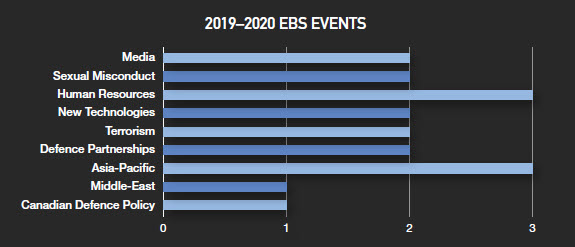
Text version
This graph demonstrates the frequency of topics explored in the Expert Briefing Series (EBS) events over the 2019-20 fiscal year.
Topics explored once are the Middle East and Canadian Defence Policy.
Topics explored twice are Media, Sexual Misconduct, New Technologies, Terrorism, and Defence Partnerships.
Topics explored three times are Human Resources an Asia-Pacific.
EBS Snap Shot
The year was marked by wide variety of briefings on both traditional and emerging issues, including:
A briefing from Dr. Anne-Marie Brady, professor at the University of Christchurch in New Zealand, on China’s foreign policy and the Chinese Communist Party's United Front Work. The engagement provided DND/CAF and its Government partners with insight into China’s influence in New Zealand and its potential parallels in the Canadian context and global aspirations.
In support of DND’s Assistant Deputy Minister of Human Resources’ efforts to support and adapt to the evolving defence work force, a presentation from Dr. David Coletto, CEO of Abacus Data, was held at DND/CAF’s new Carling Campus. Dr. Coletto shared his perspectives on the changing workplace and how the Defence Team must continue to evolve with the arrival of Millennials and other future generations into the defence workforce.
A symposium, co-hosted with the Canadian Security Intelligence Service’s Academic Outreach and Stakeholder Engagement Branch on hybrid warfare in January 2020, provided a forum for whole-of-government partners to discuss the challenges related to this emerging issue with leading experts in the field, while also exploring ways in which the interdepartmental community could better work together.
In cooperation with the Sexual Misconduct Response Centre, three reports were issued and two events held on sexual misconduct in the CAF. As part of this engagement, Dr. Stefanie von Hlatky, Queen’s University, Dr. Jo-Anne Wemmers, Université de Montréal, and Dr. Liam Ennis, registered psychologist and internationally recognized expert in violence risk assessment and management, helped the Defence Team understand the results of the Statistics Canada Surveys on Sexual Misconduct in the CAF.
A briefing from Mr. Jamil Jivani, founder of the Citizen Empowerment Project and Ontario’s advocate for community opportunities, on Radicalization and Extremism helped inform Military Personnel Command and DND/CAF efforts to address hateful conduct. He provided an in-depth analysis on how destructive ideas can influence young men towards radicalization and violence, and offered thoughtful insight on how local and national organizations such as the CAF can play a role in countering hateful conduct and radicalization.
Powerful briefings were delivered by Dr. Mary Donohue, including for key program managers working in the Assistant Deputy Minister (Material) Group, on the generational differences in how, when and why we communicate. Participants were provided examples and practical tips on how to adapt the way they communicate to achieve greater clarity, trust, and efficiency when working with different generations in the workspace.
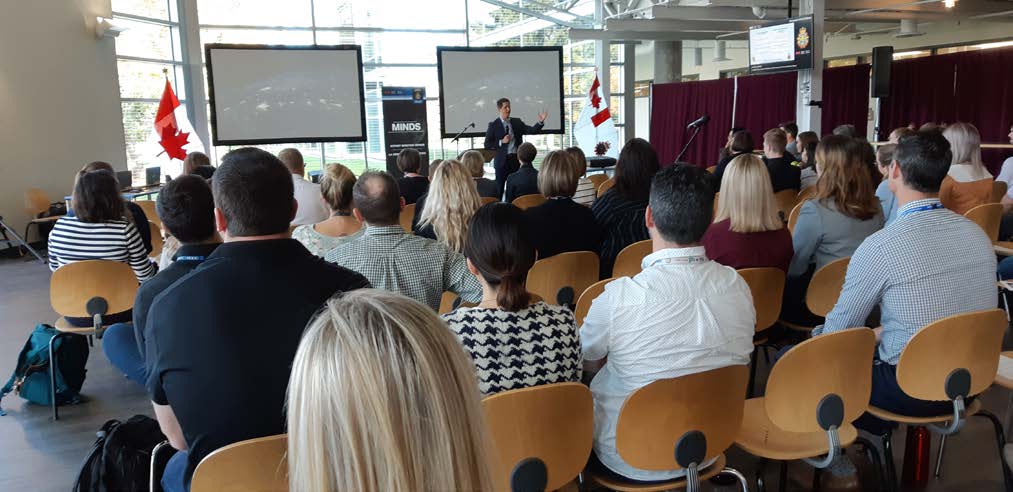

Figure 2: Stephanie von Hlatky from Queen’s University

Figure 3: Mary Donohue from Donohue Learning
B – Targeted Engagement Grants
MINDS Targeted Engagement Grants drive innovation, amplify expert voices and spark wider discussions on important defence and security issues. The grants provide up to $50,000 in non-recurring financial support for projects such as conferences, roundtables, workshops, research, and publications. To continue to foster the next generation of experts, grants valued at $10,000 are also available under the Young MINDS Initiative for undergraduate students interested in defence and security.
Funding Opportunities

Text version
A graphic image provides various numerical data about Targeted Engagement Grant applications that were received and awarded.
- Of the 89 applications for grants, 49 were funded.
- Of the $3,186,403 requested, $1,732,918 was disbursed.
- Of the 84 grant applications, 45 were funded.
- Of the 5 applications for Young MINDS grants, 4 were funded.
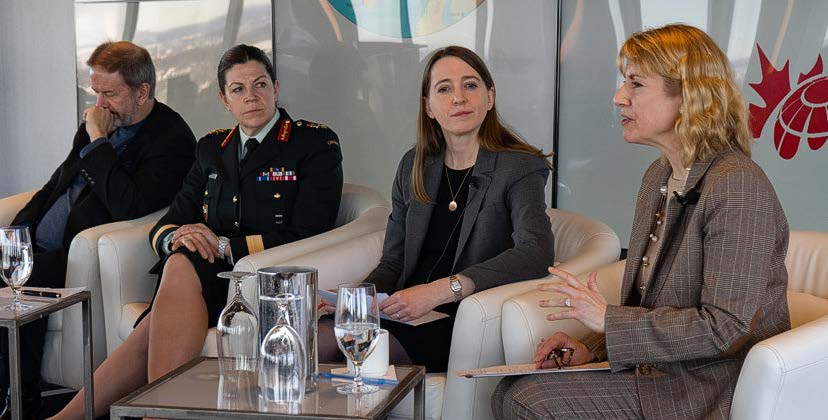
In its first year, the MINDS program issued two calls for applications, in June and October 2019. Applications were received from across Canada and around the world, and covered all 13 policy challenges. In total, more than $1.7M in grant funding was awarded. This funding enabled events and projects that directly supported DND/CAF activities and informed defence priorities.
Table 2: Distribution of applications received
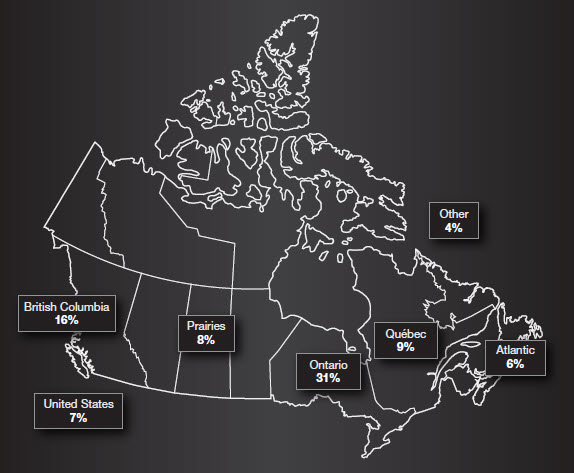
Text version
A map of Canada shows the geographic distribution of applications received. There are rectangles overlaying the map labelling different regions. In each rectangle is the percentage of applications received from that region.
They are:
- British Columbia, 16%,
- Prairies, 8%,
- Ontario, 31%,
- Québec, 9%,
- Atlantic, 6%,
- Other, 4%, and
- the United States, 7%.
Text version
A bar and line graph with three axes shows the number of grant funding applications requested and received, as well as the dollar amount of funding requested and received over two rounds of applications in fiscal year 2019-20.
In Round 1, the funding requested is almost $1.6 million, and the funding distributed is just over $800,000. In Round 2, the funding requested is just over $1.6 million, and the funding distributed is $900,000.
In Round 1, the number of applications received is 44, and the number of applications to receive funding was 23. In Round 2, the number of applications received is 45, and the number of applications to receive funding was 26.
2019-20 Highlights
The Targeted Engagement Grants funded a number of interesting and innovative activities that enabled collaboration and communication between defence and security experts and members of the Defence Team. Defence challenges were supported, expert voices amplified and wider discussion with Canadians was sparked in several ways:
- Grant recipients shared research on key defence and security issues through conferences, social media, webinars, and research initiatives;
- Over $30,000 was provided to support emerging voices in the academic community as part of the Young MINDS Initiative ; and,
- Events and research initiatives brought together diverse groups of experts, practitioners, and decision-makers to analyze and solve key challenges.
A list of all projects funded is enclosed at Annex C. Noteworthy events and funded research include:
- The Canadian Global Affairs Institute’s conferences on defence procurement in November 2019 and on modernizing North American defence in January 2020. Both sold out events included seasoned and emerging experts from the academic community and industry, as well as senior DND/CAF officials. They built on SSE priorities and helped inform ongoing efforts to strengthen defence procurement.
- A Workshop on International Training Activities hosted by l’Université de Montréal in November 2019. The event brought together academics and DND/CAF officials to explore the effectiveness of Canadian and American military training in fragile states.
- Project Ploughshares’ engagements on future defence and security challenges, which gathered together a diverse group of stakeholders. The discussions in Waterloo, Ottawa, Montreal, Halifax and Vancouver, built mutual understanding of concerns and perceptions on security challenges among participants.
- Homewood Research Institute’s workshop on the gendered experience of operational deployment among female and female-identified CAF members. This research shed light into women’s unique experience and how it influenced their careers in the CAF.
- Center for Strategic & International Studies’ research project on capacity building. This extensive project highlighted the challenges and opportunities to building security partner capacity in hybrid warfare environments, and how countries such as Canada, can sustain security partnerships in fragile states.
- A Young MINDS grant to develop Queens University’s Servicewomen’s Salute Portal, an enhanced online space to connect students and scholars interested in defence and security.

C – Collaborative Networks
MINDS Collaborative Networks bring together multi-disciplinary teams of distinguished experts from across Canada and abroad. Each Network receives $750,000 over three years to support DND/CAF through research aimed at bringing new perspectives to MINDS Policy Challenges. They also help foster the next generation of experts through the meaningful incorporation of new and young voices.
Each network is led by a Director who serves as the intellectual lead for a dynamic group of experts who are encouraged to form collaborative working relationships with stakeholders across the Defence Team. DND/CAF benefits from their in-depth and nuanced analysis as it complements ongoing work or brings new insights into priority areas of interest.
Calling all Experts!
The inaugural call for MINDS Collaborative Networks applications was launched in April 2019 and remained open for six weeks. 10 applications in total were received, primarily from academic institutions (seven), but also from think tanks (two), and a non-profit organization. Applicants represented the provinces of Ontario (60%), Québec (30%) and Alberta (10%). Overall, submissions covered 11 of the 13 policy challenges. Following a thorough evaluation process, the first three MINDS Collaborative Networks were selected and established.
2019-2020 Cohort

Led by Dr. Bessma Momani from the University of Waterloo, the Defence and Security Foresight Group (DSF) explores three policy challenges through five regional clusters: North American Security; Sub-Saharan Africa and Multinational Stabilization Operations; Russia, Eastern Europe, and North Atlantic Treaty Organization (NATO); the Middle East and North Africa; and the Asia Pacific. DSF contributes to ongoing efforts to anticipate new challenges by providing near- and mid-term research on pivotal security flashpoints.
Key 2019-2020 accomplishments include:
- Foresight training in Washington, DC, with expert Mathew Burrows (Director of the Atlantic Council's Strategic Foresight Initiative);
- GBA+ training in Halifax, with attendance by DND/CAF officials;
- Two public roundtables on cybersecurity and Turkey and NATO; and
- The selection of sixteen doctoral students and postdoctoral fellows to author policy briefs and receive mentorship by Network members.
Stay up-to-date on all their activities by visiting their website: uwaterloo.ca/defence-security-foresight-group/

The North American and Arctic Defence and Security Network (NAADSN), based at Trent University, is headed by Dr. Whitney Lackenbauer. NAADSN addresses the Defence role in the Arctic and NORAD by conducting research with students, current and emerging scholars, as well as Northern stakeholders/rights holders. It plays an important role in informing the implementation of SSE’s commitments related to the Arctic and NORAD by providing cutting-edge research, and testing assumptions about the changing security environment.
Key 2019-2020 accomplishments:
- A workshop on the future of the Permanent Joint Board on Defense in Washington, DC;
- Roundtable on search and rescue with Northern stakeholders in Cambridge Bay, Nunavut;
- Supporting students and postdoctoral participation in various conferences in North America and Europe; and
- Publishing several research papers and policy briefs.
More information on their activities is available on NAADSN’s website: NAADSN.ca

Based at Concordia University, the Security/Policy Nexus of Emerging Technologies (SPNET) is led by Dr. Kash Khorasani. SPNET is focused on the implications of using autonomous systems, artificial intelligence and cyberspace. New technologies, such as artificial intelligence, hold great promise but also carry risks. SPNET helps inform the development of effective policy instruments to mitigate these risks.
Key 2019-2020 accomplishments include hiring, training and funding several graduate students to initiate research on military applications of emerging technologies.

D - Scholarships
MINDS is committed to fostering the next generation of defence and security experts, and showcasing their work and expertise through its funding.
To achieve this objective, MINDS has partnered with the Social Science and Humanities Research Council of Canada (SSHRC) to deliver the MINDS Scholarship Initiative, and also with the NATO Defense College (located in Rome, Italy) to offer a five-month fellowship in the College's Research Division.
MINDS Scholarships
MINDS has leveraged SSHRC’s longstanding record of promotion and support for post-secondary research and training to deliver its scholarship initiative. The initiative offers research training awards and supplements at the master’s, doctoral and postdoctoral levels to students and researchers whose work is related to one or more of the MINDS Policy Challenges and/or to SSE.
In line with the program’s commitment to fostering inclusivity and a diverse pool of experts, one-year awards are also available for Indigenous students at the master’s level whose studies relate to defence and security issues.
Following a successful trial in 2018-2019, the partnership between MINDS and SSHRC enabled the official launch of the full MINDS Scholarship Initiative in 2019-20.

Text version
This graphic shows two boxes with an arrow going from the box on the left to the box on the right. Written in the left box is ’52 Applications’, and written in the right box is ’30 Funded’.
Some candidates were offered full funding while others received a supplement to their existing SSHRC or MINDS scholarship. A total of $600,000 in funding was allocated in 2019-20.
Table 4:
| Type of Research Training Award | # awards distributed | Value ($) |
|---|---|---|
| MINDS Initiative Postdoctoral Fellowships (up to 2 years) | 1 | 45,000 |
| MINDS Initiative Doctoral Awards (up to 3 years) | 2 | 70,000 |
| 1-year MINDS Initiative Doctoral Awards | 8 | 280,000 |
| MINDS Scholarship Initiative Supplements (1 year, non-renewable) - Master's | 9 | 90,000 |
| MINDS Scholarship Initiative Supplements (1 year, non-renewable) - Doctoral | 8 | 80,000 |
| MINDS Master's Scholarships Indigenous Students | 2 | 35,000 |
NDC Fellowship
The NATO Defense College (NDC) is the Alliance’s major centre of education, outreach and research on transatlantic security issues.
MINDS has partnered with the NDC to offer a unique opportunity to conduct research directly with experts from across NATO member countries at its headquarters in Rome, Italy.
Every year, the MINDS NDC Fellowship offers an experienced member of the Canadian defence and security expert community the opportunity, along with a $100,000 grant, to conduct research relevant to Canada and NATO, and aligned with MINDS Policy Challenges.
For the inaugural NDC Fellowship competition, MINDS received 10 applications, from across Canada. After careful evaluation, Dr. Howard Coombs was awarded the fellowship for 2020. Dr. Coombs is a retired CAF officer and the Associate Chair War Studies Program of the Royal Military College of Canada.
More information on the NDC is available on the NATO Defense College website.

E - Rapid Response Mechanism
DND/CAF must be ready to respond to evolving security and defence challenges, and requires access to quick and high quality advice from external experts to make sound policy decisions. MINDS' Rapid Response Mechanism answers this need by providing financial support and funding flexibility to address the evolving security environment, and fast-moving requirements for advice.
In 2019-20, the Rapid Response Mechanism was well utilized to support ongoing efforts related to international peace and security, and DND/CAF’s intelligence activities. This included funding for:
- The Romeo Dallaire Child Soldier’s Initiative to consolidate their online presence and enhance their ability to prevent the recruitment of child soldiers as part of their engagement with the Canadian Defence Academy’s Dallaire Centre of Excellence for Peace and Security; and,
- Research on crown prerogative and defence intelligence activities conducted by Dr. Philippe Lagassé, Carleton University, which will inform ongoing research on the governance of defence intelligence.
What’s next for MINDS?
Preparing for the Year Ahead
As MINDS enters its second year, it will be important to continue adapting the program to the new reality and maintain the momentum that was built during the inaugural year.
The program will remain focused on applying lessons learned to enhance its support to the Defence Team and the security and defence expert community. This includes consolidating and expanding MINDS links to the community through targeted outreach, providing the Defence Team with greater access to the projects it funds, and continuing to promote its role as a vehicle for change.
MINDS will continue to do its part to foster culture change and greater collaboration between Government and the security and defence expert community.
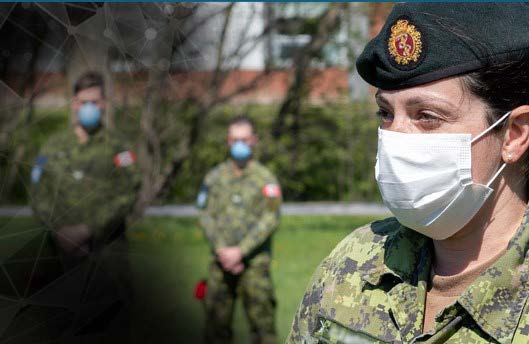
New Avenues for Cooperation
As the world continues to grapple with responding to COVID-19, MINDS has sought out potential opportunities to support expert advice and research on the evolution of security and defence issues in the context of the current global crisis.
Throughout the program’s first year, the defence and security environment has evolved considerably and garnered many lessons learned, presenting new challenges and opportunities. MINDS continues to adapt to these changes.
- New Policy Challenges – 2020-21 sees the introduction of two new policy challenges, focused on addressing and preventing hateful conduct and sexual misconduct respectively.
- COVID Challenge – In summer 2020, a call for papers exploring COVID-19's implications for geopolitics, DND/CAF roles and responsibilities, and lessons learned from the pandemic response, was issued to MINDS Collaborative Networks. A special grant competition was also issued to experts from across Canada and around the world.
- Virtual Engagements – A webinar model for the Expert Briefing Series will be adopted, which will make events accessible to a wider audience. Similarly, network and grant activities will be adapted as COVID-19 mitigation measures limit conventional conference and engagement practices.
Additionally, MINDS will continue to connect the Defence Team with relevant and timely external expertise, including through two rounds of Targeted Engagement Grants, in spring and fall 2020, and foster the future generation of experts with another round of graduate and post-graduate scholarships and the NATO Defense College Fellowship.
Following a successful call for applications, MINDS will also expand access to timely and relevant expertise by funding three new Networks in 2020-21:
- Military Design and Innovation Collaborative Network
- Director: Dr. Philippe Dufort, St. Paul University
- Network for Research on Hateful Conduct and Right Wing Extremism
- Co-Director: Dr. Barbara Perry, Ontario Tech University
- Co-Director: Dr. David Hofmann, University of New Brunswick
- Network for Strategic Analysis
- Co-Director: Dr. Stefanie von Hlatky, Queen’s University
- Co-Director: Dr. Justin Massie, Université du Quebec à Montreal
Stay in touch!
Follow. Share. Apply.
- National Defence #MINDS
- Canadian Armed Forces #MINDS
- National Defence #MINDS
- Canadian Armed Forces #MINDS
- Email: MINDS@forces.gc.ca
- Web page: Canada.ca/Defence-MINDS
Annex A: MINDS Policy Challenges for FY2019-20
Each year the MINDS program releases a set of Defence Policy Challenges. They reflect policy challenges for DND/CAF and are the result of consultations with senior leadership across the Defence Team. These challenges represent key issues areas where DND/CAF could benefit from external expertise to challenge or complement their thinking. When applying to the program applicants are asked to align their work with these priorities, focusing on the following key questions, as well as other additional guiding questions.
Applicants were also encouraged to consider the future evolution of the issue area (i.e. forecasting), implications for DND/CAF, and Government of Canada (GoC) priorities, including Indigenous peoples, innovation, environment and climate change, diversity and inclusion, etc.
Theme One: Well-Supported, Diverse, Resilient People and Families
Challenge 1: Creative recruitment and retention models
- How can DND/CAF make a military career attractive to all interested in serving? How can the CAF strengthen the appeal of a military career when competing for talent from the private and public sector?
- What are the barriers (systemic barriers, unconscious biases, etc.) to recruiting and retaining a diverse CAF within the existing recruitment and retention models, and how can these be eliminated?
- How can DND/CAF best integrate and manage a more diverse membership, including those with unique (i.e., intersectional) profiles?
Challenge 2: Innovative approaches to force mix and structure
- What is the appropriate force mix and structure for today and in the future?
- How do we maximize the output and impact of the Reserves?
- How can diversity targets support Force Posture and Readiness efforts?
Theme Two: A Changing Security Environment
Challenge 1: The Rise of Grey Zone / Hybrid Warfare
- What does the rise of hybrid warfare mean for policies/capabilities at the strategic, operational and tactical level?
- What is the role for DND/CAF and other government departments? Who should have the authorities and what is the governance structure?
- How do allies and adversaries define and approach hybrid warfare?
- How are non-state actors and adversaries using non-traditional actors (e.g. gender or minority populations and child soldiers)?
Challenge 2: The Evolving Role of Major Powers
- What are the strategic objectives of Russia and China? How do they align and diverge?
- How are allies, partners and other actors responding to Russia and China?
Theme Three: Global Defence Engagement
Challenge 1: NORAD Modernization and the Future of North American Defence: Identifying Threats and Gaps
- What are the emerging threats against North America and the associated gaps in continental defence? How can Canada best contribute, cooperate and coordinate within NORAD to address them?
- What capabilities and infrastructure fill these gaps? What is the best use of Canadian resources and assets to fill identified gaps?
- How should/could NORAD evolve given the evolution of both the security environment and technology, including impacts to the space, air and maritime domains?
- What policies within the Government of Canada must be reformed in order to modernize NORAD?
Challenge 2: Canada’s Defence Relationships
- How does the breakdown of the international rules-based order affect defence relations?
- What is the future of NATO in an era of great power competition?
- What are the opportunities and challenges to defence and security cooperation?
- How can Canada’s defence relationships be expanded to include the voice and agency of women (i.e. Women, Peace and Security)?
Theme Four: Approach to Defence: Anticipate.
Challenge 1: Anticipating Future Challenges
- How will the following domains evolve over the next 10, 20, 50 years?
- Security Environment
- Defence Investment and Burden Sharing
- Geopolitical issues, alliances and partnerships
- Capabilities
- Technology / Information
- Are current capabilities broad and adaptable enough to meet an evolving security domain? If not, what force structure is the most applicable to meet any future challenge in a joint or combined environment?
Theme Five: Approach to Defence: Adapt
Challenge 1: Cyber and Space as Key Enablers
- How can DND/CAF maximize these domains?
- How can DND/CAF maintain effective command and control as new domains are integrated?
- How do you take action to develop and test these capabilities while discussing legal/ethical considerations?
- How will adversaries use and/or exploit these domains?
Challenge 2: The Role of Artificial Intelligence
- How do we better understand the military and security context/nexus of developments and uses of AI?
- How can the CAF be better positioned to leverage continuous developments and uses of AI?
- What legal/ethical considerations should the CAF be aware of during the development, testing, and use of AI applications? How do you reduce the potential for imbedding biases as a result of machine learning?
- How will adversaries use AI to challenge the DND/CAF?
Challenge 3: Emerging Technology and Military Application
- How can DND/CAF identify the military/security value of emerging technologies?
- What are these technologies?
- How can DND/CAF work with these sectors to raise awareness and mitigate risk?
- How should the role of these sectors evolve given the high likelihood of dual-use applications for emerging technologies?
- What are relevant or notable examples where military or dual-use technology was acquired from the private sector by a foreign state, and what lessons can be learned from these cases?
Challenge 4: Defence Role in the Arctic
- Beyond the military domain, what threats exist in the Arctic? What are the foreign economic and military interests in Canada’s North?
- DND/CAF works closely with partners (e.g. government, other Canadian partners, other Arctic countries, NATO, non-Arctic partners) in the Arctic. How can these relationships be more effective at delivering benefits and services?
Challenge 5: Defence Procurement
- How can DND/CAF improve defence procurement?
- What does the model look like?
- What policy changes, if any, are required to implement a new model?
Theme Six: Approach to Defence: Act
Challenge 1: The Future of Capacity Building
- How should capacity building evolve?
- What are the implications of hybrid warfare on capacity building?
Annex B: Expert Briefing Series 2019-20
Emerson Brooking
Digital Forensics Research Lab, Atlantic Council
2 April 2019
“The Weaponization of Social Media”
Mr. Brooking discussed how social media enables new pathways for actors to "win" conflicts without resorting to kinetic violence.
Thomas Juneau
University of Ottawa
25 April 2019
“Yemen, Saudi Arabia, the UAE, and the Growing Costs of War”
Dr. Juneau explored the causes and consequences of Saudi Arabia’s decision to launch its intervention in Yemen in March 2015, including an analysis of the UAE’s decision to fully align with Saudi Arabia and the consequences thereof.
Chris Kilford
Canadian International Council
9 May 2019
“Turkey and NATO: Past, Present…Future?”
Dr. Kilford discussed Turkey-NATO relations and why Turkey is increasingly seen as NATO’s “odd-man out,” with a focus on Turkey’s new presidential system its possible challenge of NATO's commitment to the principles of individual liberty, democracy, and the rule of law.
Johanna Blakley
Norman Lear Center, University of Southern California
23 May 2019
“How Media Moves Us: Measuring the Social Impact of Storytelling”
Dr. Blakley’s presentation explored the media’s impact on audiences’ attitudes and behaviour, and the development of effective communication strategies.
Nina Jankowicz
Kennan Institute, Wilson Center, United States
6 June 2019
“Whack-A-Troll: How to Lose the Information War”
Ms. Jankowicz discussed strategies for regulating and cooperating with social media platforms to fight information warfare. Her presentation included findings from her field work in Ukraine, specifically addressing Russia’s influence campaign and Ukraine’s response during the most recent Presidential election.
Michael Brown and Pavneet Singh*
Defence Innovation Unit, United States Department of Defence
21 June 2019
Mr. Brown and Mr. Singh led a series of roundtable discussions with security, defence, and innovation partners on their report entitled, “China’s Technology Transfer Strategy,” regarding China’s economic statecraft targeting defence sensitive technologies.
*As employees of a state government, no compensation was provided to Mr. Brown and Mr. Singh for their engagement with National Defence.
Christopher O’Dea
Retired international investment management executive
25 July 2019
Based on his article in the Naval War College Review entitled, “Asia Rising: Ships of State?”, Mr. O’Dea delivered a series of roundtable discussions on the implications of China’s Maritime Strategy for national defence and security.
Anne-Marie Brady
University of Canterbury in Christchurch, New Zealand
2 October 2019
“CCP Political Interference Activities: Assessing the Risk, Devising a Resilience Strategy”
Dr. Brady discussed the Chinese Communist Party’s role in political interference activities, including the United Front’s activities.
David Coletto
Abacus Data
9 October 2019
“How to Survive and Thrive at the Millennial Age”
Mr. Coletto delivered a presentation on generational change and the modern workplace, exploring the intersection between disruptive technology and a generation of employees who were raised with different values and expectations.
Erin Huner and Danielle Carr
Western University
31 October 2019
“Educating in the Grey Zone: Connecting explorations of healthy bodies, sexuality and communication as the basis for gender-based violence prevention”
Dr. Huner and Ms. Carr addressed what gender-based violence is, where it comes from, and how to prevent it. They explored what constitutes gender-based violence, presented a public health approach to the issue, and discussed different historical approaches to prevention.
Andrea Charron and James Fergusson
Centre for Defence and Security Studies, University of Manitoba
5 November 2019
“NORAD 2.0ish”
Drs. Charron and Fergusson discussed the changes driving the modernization of the North American Aerospace Defense Command (NORAD) and examined the associated challenges, such as modernizing the North Warning System and NORAD’s relationship to the Unified Command Plan.
William Eggers and Joe Mariani
Deloitte Center for Government Insights, United States
20 November 2019
“The Future of Work in Defence”
Mr. Eggers and Mr. Mariani explored the new technological, demographic, and strategic trends reshaping the demands on the defence workforce.
Jamil Jivani
Citizen Empowerment Project
12 November 2019
“Radicalization and Extremism”
Mr. Jivani discussed the issues of radicalization and extremism among youth and the destructive ideas that can influence young men towards radicalization, extremism, and violence.
Natalie Sambhi
Verve Research
5 February 2020
“Back from the Barracks: Why Indonesia Wants (and Needs) its Military in Politics and Security”
Ms. Sambhi highlighted Indonesia’s perspectives on defence and security domestically and regionally, as well as its views on the broader Indo-Pacific and the Free and Open Indo-Pacific concept.
Symposium on Hostile Activities by State Actors: Hybrid Methods in the Grey Zone
January 2020
MINDS co-hosted a symposium with the Canadian Security Intelligence Services’ Academic Outreach Program, which explored the political, economic, and military dimensions of hybrid threats. The event included the following experts: Carl Miller (Centre for the Analysis of Social Media, UK), Charles Burton (Macdonald-Laurier Institute, Ontario), Jonathan Manthorpe (Foreign Affairs Correspondent, British Columbia), Adam Segal (Council on Foreign Relations, US), Suzanne Spaulding (Center for Strategic and International Studies, US), Sergey Sukhankin (Jamestown Foundation, US), Jeffrey Edmonds (Center for Naval Analyses, US), Kristine Lee (Centre for New American Security, US), and Margaret McCuaig-Johnston (University of Ottawa).
Mary Donohue.
Donohue Learning
21 February 2020
“Message Received: Reducing Stress in the Workplace”
Dr. Donohue explored how diversity, communication and stress management are related, and provided tips on how to foster effective communication to ensure healthy and productive communication and interactions in the workplace.
Dr. Stéfanie von Hlatky and Dr. Jo-Anne Wemmers
Queen’s University / Université de Montréal
19 February 2020
“Interpreting Survey Results on Sexual Misconduct in the CAF”
Drs. von Hlatky and Wemmers provided their perspective and insights on the results of Statistics Canada’s two voluntary surveys on sexual misconduct in the Canadian military, and offered recommendations to the Defence Team and the Sexual Misconduct Response Centre on the overall response to the surveys.
Liam Ennis
Forensic Behavioural Science Group
5 March 2020
“Perpetrators of Sexual Misconduct: What We Need to Know and Do”
Dr. Ennis provided his thoughts on the results of Statistics Canada’s surveys on sexual misconduct in the Canadian military, from the perspective of those who commit sexual misconduct.
David McMahon
Clairvoyance Cyber Corp
12 March 2020
“Defence against the Dark Arts”
Mr. McMahon discussed the threats that exist in cyberspace, including its potential weaponization and how state and non-state actors are utilizing it for their illicit activities.
Annex C: Funding Results for 2019-20 Targeted Engagement Grants
Note: Due to COVID-19 some of these events and projects may not have occurred on the dates included below.
Round 1 – June 2019
Saint-Paul University
Designing Security: A New Methodology to Address the Intractable Challenges of the 21st Century
Ottawa, Ontario
$50,000
Funding provided to support a workshop to design an education platform that will facilitate the instruction and dissemination of a common, agnostic design theory, to ensure allied commanders can speak and collaborate with each other using a ‘common language.’ This platform will be field-tested with a cohort of senior and mid-level officers in 2023.
Homewood Research Institute
The Gendered Experience of Operational Deployment among Female and Female-Identified Service Members and Veterans
Guelph, Ontario
$50,000
Funding provided to support the conduct of a series of focus groups with female and female-identified servicewomen and veterans, in order to explore the gendered experience of deployment, as well as a workshop to: discuss the unique experience, opportunities, and challenges of operational deployment among Canadian servicewomen and veterans; identify unique factors related to retention and discharge; and, mobilize Canadian scholars, clinicians, and policy makers around these issues.
University of Waterloo
Lessons Learned So Far: The Enhanced Forward Presence in Northeastern Europe, 2017-2019
March 2020 – Riga, Latvia
$30,622.85
Funding provided to support a two-day workshop held at the Latvian Institute of International Affairs (LIIA), bringing together defence experts from the Enhanced Forward Presence (eFP) Framework Nations (Britain, Canada, Germany, and the United States) and the host countries (Estonia, Latvia, Lithuania, and Poland) to discuss their countries’ experiences with the eFP deployments to collate lessons learned from the reassurance and deterrence mission to date.
Queen’s University
Women's Integration in the Military: Optimizing the CAF’s Career Cycle
May 2020 – Kingston and Ottawa, Ontario
$10,908
Funding provided to support a systematic examination of changing gender relations within the CAF, focusing on the different phases of the military career cycle, in order to assess policy initiatives that have been implemented in Canada and elsewhere, and understand the conditions under which such initiatives are successful in recruiting, retaining and better integrating women in the military.
Canadian Global Affairs Institute
New Procurement Models for DND
20 November 2019 – Ottawa, Ontario
$50,000
Funding provided to support a one-day conference in Ottawa focused on examining how procurement can be streamlined to better deliver the capabilities outlined in SSE, illuminating concerns in the defence procurement processes, and proposing alternative procurement models to mitigate these challenges.
Saint-Paul University
Supporting the Defence Team to Face Hybrid Warfare and the Grey Zone: An International Seminar on Operational and Strategic Design
20-24 October 2019 – Ottawa, Ontario
$50,000
Funding provided to support a three-day international seminar bringing together international academics, military, and government personnel specialized in innovative operational and strategic design in complex environments and hybrid warfare.
Université de Montréal
Hybrid Warfare, Information Operations and Social Media
September 2019 – April 2020 – Montréal, Québec
$49,463.57
Funding provided to support a public conference on open source information operations and the development of a machine learning algorithms for analyzing misinformation campaigns.
Université Laval
Stratégies de défense des alliés américains face aux menaces multidimensionnelles de la Chine et de la Russie
7-8 May 2020 - Québec, Québec
$24,259.84
Funding provided to support a symposium focused on better understanding the response of key American allies to threats such as information manipulation, cyberattacks and interference in democratic processes, as well as to compare their reactions.
Carleton University, Norman Paterson School of International Affairs (NPSIA)
AI: Implications for Defence, National Security, and Intelligence
March 2020 – Ottawa, Ontario
$48,433.90
Funding provided to support a two-day academic conference exploring the nexus between Artificial Intelligence (AI) and national defence, national security, and intelligence. The conference will lead to the submission of a journal special issue (September 2020) on AI and international security.
Carleton University, Norman Paterson School of International Affairs (NPSIA) and the Centre for Security, Intelligence, and Defence Studies (CSIDS)
Canadian Capstone
February 2020 – Toronto, Ontario
$12,986
Funding provided to support a one-day event at the Canadian Forces College in Toronto, offering emerging scholars a platform to present cutting-edge research on issues relating to defence and security.
Université du Québec à Montréal
Colloque international : « Cybersécurité, ingérence politique et manipulations de l’information : Enjeux et défis à l’approche des élections fédérales canadiennes »
11-13 October 2019 – Montréal, Québec
$34,453.51
Funding provided to support a one-day international conference on Canada's vulnerabilities and perspectives in the face of "hybrid" strategies deployed by foreign powers, including a 72-hour hackathon involving nearly 50 IT security specialists.
University of British Columbia
Space Debris and National Security: An Interdisciplinary Solutions-Oriented Examination
September 2019-May 2020 – Vancouver, British Columbia
$36,456
Funding provided to support a workshop and report the problems of space debris identification, tracking, avoidance and de-orbiting; the technological, strategic, and legal aspects of anti-satellite weapons; risks posed by commercial constellations of satellites; cooperation challenges with Russia, China and India; as well as recommend solutions to the Defence Team.
St. Francis Xavier University, Brian Mulroney Institute of Government
Identifying and Assessing Search and Rescue and Emergency Response Capabilities in the North American Arctic
November, 2019 – Ottawa, Ontario
$27,400
Funding provided to support the collection and assessment of the lessons learned from the annual Canadian and American operations, Nanook and Arctic Shield, pertaining to search and rescue and emergency response capabilities, as well as a two-day workshop on the lessons learned, best practices, and evolving technologies, focusing on mass rescue operations, Arctic sustainment packages, interagency cooperation and coordination, and the use of community assets as force multipliers.
Valens Global and Carleton University, Norman Paterson School of International Affairs (NPSIA)
How to Master the Strategic Environment through Applied Artificial Intelligence: Anticipation of Sub-State Threats as a Case Study
September 2019-January 2020 – Washington, DC and Ottawa, Ontario
$49,860.20
Funding provided to support the development of a comprehensive report explaining how Artificial Intelligence (AI) can successfully project violent non-state actors’ strategic futures (including attack patterns, criminal activities, and geographic expansion), and how the design of AI in these contexts can avoid inadvertent biases.
Project Ploughshares
MOSAIC: Exploring Future Defence and Global Security Challenges
August-December 2019 – Ottawa, Ontario; Montreal, Quebec; Vancouver, British Columbia, Halifax, Nova Scotia
$38,000
Funding provided to support a series of policy lab discussions across Canada, engaging members of the public and relevant stakeholders on defence and security challenges in the short, medium, and long-term.
Carleton University, Norman Paterson School of International Affairs (NPSIA) and the Centre for Security, Intelligence, and Defence Studies (CSIDS)
The Year Ahead: An International Security, Intelligence, and Defence Outlook for Canada for 2020
8 December 2019 – Ottawa, Ontario
$20,840
Funding provided to support a one-day with the aim of identifying and discussing the most pressing security, intelligence, and defence challenges likely to face Canada and the world in the year ahead.
Université du Québec à Montréal
La coopération canadienne en matière de renseignement
25-26 May 2020 – Montréal, Québec
$37,132
Funding provided to support a symposium examining Canada's intelligence cooperation in a context of challenging the liberal international order, as well as issues related to the sharing and use of intelligence in a changing international environment.
Université de Montréal
The Politics of Foreign Military Training in Fragile States
14-15 November 2019 – Montréal, Québec
$18,497
Funding provided to support a two-day conference with academics and policymakers to understand the drivers, consequences, and effectiveness of foreign military capacity building and security assistance programs, focusing on Canadian and American missions in fragile states.
Alixima Solutions Ltd.
Improving Defence Procurement: Aligning Government and Industry Interests during the Procurement Process
2020 – Ottawa, Ontario
$49,000
Funding provided to support the engagement of three independent senior executives from the defence industry to produce a white paper describing how defence companies are motivated. The project will develop recommendations for improving Canada’s bid process and project execution to better align the Government of Canada’s procurement objectives with industry success measures. Recommendations will also consider the alignment of gender equity objectives between Canada and industry.
Queen’s University, Centre for International and Defence Policy (CIDP)
Anticipating Defence Challenges in the Asia-Pacific: Canada as a Pacific Nation
20-21 February 2019 – Ottawa, Ontario
$31,750
Funding provided to support a two-day conference to assess the security environment in the Asia-Pacific over the next decade, and explore the implications for Canada of changing great-power relations in this region. The conference focused on Australia, Canada, South Korea and New Zealand, examining how these countries can cooperate with one another and with the United States to advance peace and security in the region.
Carleton University, Norman Paterson School of International Affairs (NPSIA)
Planning Informed by Design: Canadian Operational Art and How We Fight
September 2019-June 2020 – Ottawa, Ontario
$50,000
Funding provided to support research on existing design and planning practices in the CAF, as well as best and emerging practices in other comparable militaries and the gaps between them. The project includes a workshop of civilian and military experts in the field of operational art and design, an academic paper and a set of policy notes focusing on the needs and capabilities of the CAF.
Young MINDS Youth TEG
Queens University
Servicewomen’s Salute Portal Project
Kingston, Ontario
$10,000
Funding provided to support the development of an enhanced online communications opportunity for students and scholars with interest in defence and security via the Queens University Servicewomen’s Salute Portal Project. The portal allows Government of Canada, as well as defence and security organizations to support next generation scholars, as well as help curate more “next gen” insights into the MINDS policy challenges.
Round 2 – October 2019
Queen’s University
The Many Faces of Diversity in Military Employment
Ottawa, ON
$ 29,260
Funding provided to support a workshop on how to best recruit, develop, support, and retain CAF members. With a focus on the ability of the CAF to meet its personnel requirements based on the establishment of an organizational culture of inclusiveness and cohesion, the event will result in a policy brief and the publication of an article in an academic journal.
Queen’s University
Getting to 25% in the CAF: A Critical Analysis of Recruitment Efforts Targeting Women
Kingston, ON
$ 48,950
Funding provided to support research on CAF recruitment activities targeted at women, including national advertisement campaigns, and official communications. The research investigates whether past and current public relations strategies are effective in the recruitment of women, and in positioning the CAF as an employer of choice for women.
Queen’s University
Defence and Security in the Asia-Pacific (DESAP)
Kingston, ON
$ 9,651
Funding provided to support a workshop on defence and security in the Asia-Pacific with a focus on great power dynamics, civil conflict and unconventional threats.
University of British Columbia
Re-entering rocket stages and satellites in the Canadian Arctic
Vancouver, BC; Iqaluit, NU
$50,000
Funding provided to support a workshop in Iqaluit exploring the security, safety and environmental risks associated with the disused rocket stages and satellites re-entering the atmosphere over Canada’s Arctic, and how Canada and DND/CAF could respond.
Centre for a New American Security
The Future of Russia and China in the Arctic
Washington, DC, USA
$42,452
Funding provided to support a project aimed at examining the evolution of Russia-China relations in the Arctic over the next 10-15 years, with a focus on the Canadian Arctic and an in-depth study of Sino-Russian relations.
Monash University
Diversity and Inclusion in Canadian Security Studies: Implications for the CAF
Ottawa, ON; Melbourne, Australia
$37,991
Funding provided to support research on the demographic and intellectual diversity of Canada’s security studies, in order to identify whether a lack of diversity in this field has implications on CAF recruitment, including by acting as a deterrent for potential women and minority recruits.
Center for Strategic and International Studies
Implications of Hybrid Warfare on Capacity Building
Washington, DC
$49,787
Funding provided to support the development of a policy and decision-making framework to improve Canada’s use of capacity building and proxy forces in hybrid/gray zone contexts.
Valens Global
“And the Truth Will Set You Free”: A Response Framework for Countering In-Theater Disinformation Operations
Washington, DC, US; Edmonton, AB
$49,916
Funding provided to support research on disinformation and information warfare tactics of adversaries and response techniques of allies to identify best practices for overseas deployments.
Canadian Global Affairs Institute
Modernizing North American Defence
Ottawa, ON
$48,149
Funding provided to support a conference on current and future threats to North America, the gaps they present, and how to address them. The event explored a number of related issues, including NORAD modernization, CAF capability in the Arctic, maritime domain awareness, as well as the replacement of the North Warning System.
Saint-Paul University
L’approche émergente du leadership partagé et inclusif en gestion et sa pertinence pour les FAC (The Emerging Approach to Shared and Inclusive Leadership in Management and its Relevance for the CAF)
Ottawa, ON
$50,000
Funding provided to support the development of training on shared and inclusive leadership for the CAF, which may also be used for training allied forces. The training is supported by a website with resources for continuous learning.
University of Windsor
Recent Developments in AI and its Applications in Defence and Security as a Dual-Use Technology
Windsor, ON
$42,500
Funding provided to support a conference on Artificial Intelligence (AI) and the production of a report on AI research and researchers, with a particular focus on dual-use technologies. The project aims toward establishing a multi-disciplinary task force, with participation by industry, academics, and defence and security professionals.
Conference of Defence Association Institute
400 000 Strong on CAF Recruitment: Tracking the Storyline
Ottawa, ON
$49,396
Funding provided to support an assessment of Canadians’ perception of DND/CAF, in order to inform the development or amendment of the CAF’s current recruitment strategies. Preliminary results will be shared as part of a panel on recruitment and retention during the Ottawa Conference of Security and Defence, expected to be held in 2020.
Security Implications of Commercial Infrastructure in an Era of Grey-Zone Conflict with China
Chicago, IL, USA; Ottawa, ON
$48,050
Funding provided to support an assessment of critical infrastructure investment trends, current practices in security agreements, and how Chinese civil-military fusion policy impacts these assets.
University of New Brunswick
Enhanced Learning for Combat Team Command Readiness
Fredericton, NB
$27,400
In partnership with the Tactics School at the Canadian Army Combat Training Centre, funding was provided to support the research, design and trial of evidenced-based case studies of peer-to-peer high-intensity combat. Efforts intended to culminate with a report and design of virtual simulations to be included in next year’s Army leadership training cycle.
Project Ploughshares
From safety to security: reducing the threat environment through the responsible use of outer space
Waterloo, ON; Ottawa, ON; Montréal, QC
$50,000
Funding provided to support a workshop on how existing and emerging norms of responsible behaviour in outer space may apply to space-based military capabilities and activities. The goal is to produce a roadmap of relevant and achievable ethical and legal practices that informs military activities.
Carleton University
Hostile State Activity in Cyber and Space: Converging Domains, Future Threats and Canada’s Response
Ottawa, ON
$31,417
Funding provided to support research on how China, Russia, North Korea and Iran are integrating their space and cyberspace efforts militarily, as well as an assessment on whether patterns of past cyber-attacks could be indicative of what future hostile state operations in space could look like.
Chaire Raoul-Dandurand, UQAM
Repenser la sécurité à l’ère des changements climatiques : a-t-on besoin d’un nouveau paradigme? (Rethinking Security in the Era of Climate Change: Do we Need a New Paradigm?)
Montreal, QC
$42,754
Funding provided to support a conference on the link between climate change and issues related to security and defence.
Asia Pacific Foundation of Canada
The Free and Open Indo-Pacific (FOIP): Charting a Common Approach
Vancouver, BC
$42,169
Funding provided to support a conference on the emerging approach to Asia-Pacific relations, known as “Free and Open Indo-Pacific” (FOIP), including panels on economics, governance, and security, and a discussion on the reaction of regional actors to the growth of Russia and China.
One Earth Future
Women, Peace and Security Curriculum Consortium
Ottawa, ON
$42,749
Funding provided to support a conference on the implementation of Canada’s National Action Plan on Women, Peace and Security (WPS), with a focus on how the WPS Agenda and gender considerations are integrated into post-secondary and military education.
Balsillie School of International Affairs
Simplifying Emerging Technologies: Risks and How to Mitigate Them
Waterloo, ON
$14,579
Funding provided to support a workshop on cyber security (including quantum, mathematics and engineering) with both technical experts and experts in social sciences, including in the areas of political science, sociology and ethics. Its purpose is to bridge gaps in understanding between the technical and social sides of dual-use technologies with military applications.
Women in International Security Canada
Future Security Challenges Facing Canada: Vital Insights from Women in International Security
Toronto, ON
$17,000
Funding provided to support a workshop co-hosted by the University of Toronto and the Canadian Forces College, showcasing the work of 20 women graduate students from across Canada. The workshop is organized around four key themes: 1) New and Emerging Security Threats; 2) Complex Conflict and War; 3) Gender and Security; and 4) Security, Justice, and Law.
University of Ottawa
Action for Peacekeeping? Middle Powers, Liberal Internationalism, and the Future of UN Peace Operations
Ottawa, ON
$27,486
Funding provided to support a workshop on how geopolitical changes (i.e., concerns about multilateralism, rise of China and Russia) affect strategic, on-the-ground considerations of United Nations peace operations, and the role middle powers like Canada can play in this context.
Centre sur la sécurité internationale, Laval
11ème Rencontre internationale Université-Défense de Québec (UNIDEF) 2020 (11th International Meeting of Université-Défense de Québec (UNIDEF) 2020)
Quebec, QC
$22,956
Funding provided to support a conference entitled, “Cold or Hot: Is War Profitable in the Future?”, focused on encouraging exchange between universities, the military and members of civil society on issues related to this theme.
Young MINDS Youth TEG
Queen’s University (Centre for International and Defence Policy)
Applying an Intersectional Lens to analysis of Sexual Misconduct in the CAF
Kingston, ON
$9,920
Funding provided to support research on sexual misconduct in the CAF, focusing on the experiences of Indigenous and other racialized groups, and comparing Operation HONOUR to similar initiatives around the world. Outcomes of this project will be focused on increasing the efficiency of existing strategies and programs.
University of Alberta
Canadian-Chinese Bilateral Relations in the Grey Zone: How Canada Can Learn from China’s Hybrid Strategies
Edmonton, AB
$8,500
Funding provided to support analysis on China’s use of grey-zone technology, as well as Canada and China’s military deterrence strategies for hybrid threats, through a critical gender lens. The study also examines enhancing cooperation between Canada and China, as well as bolstering collective defence.
Saint-Paul University
L’ère de la guerre hybride: série d’ateliers et conférences étudiantes de sensibilisation aux défis sécuritaires du Canada
Ottawa, ON
$10,000
Funding provided to support a series of workshops and conferences on hybrid warfare and the use of technology in the grey-zone, with the goal to forge greater discussion and engagement between young academics and members of the Defence Team.
Annex D: Funding Results for 2019-20 Collaborative Networks
North American and Arctic Defence and Security Network (NAADSN) /
Réseau sur la defense et la sécurité nord-américaines et arctiques (RDSNAA)
Network Director: Dr. P. Whitney Lackenbauer, Trent University
Defence Policy Challenges Addressed: Defence Role in the Arctic, NORAD Modernization, and Evolving Role of Major Powers
The North American and Arctic Defence and Security Network (NAADSN) explores the three identified challenges by conducting research with students, current and emerging scholars, as well as Northern stakeholders/rights holders. NAADSN contributes to ongoing DND/CAF work related to the operationalization and implementation of defence policy commitments related to the Arctic, providing access to leading-edge research, and testing assumptions about the changing security environment.
Defence and Security Foresight (DSF) Group
Network Director: Dr. Bessma Momani, University of Waterloo
Defence Policy Challenges Addressed: Anticipating Future Challenges, Evolving Role of Major Powers, and the Future of Capacity Building
The Defence and Security Foresight Group explores the three identified challenges through five regional clusters, focusing on North American Security; Sub-Saharan Africa and Multinational Stabilization Operations; Russia, Eastern Europe, and NATO; the Middle East and North Africa; and the Asia Pacific. The DSF Group contributes to ongoing DND/CAF efforts to anticipate new challenges by providing near- and mid-term forecasting research on pivotal security flashpoints, as well as by developing analytical tools to inform policy and CAF force development.
Network on the Security/Policy Nexus of Emerging Technologies (SPNET)
Network Director: Dr. K. Khorasani, Concordia University
Defence Policy Challenges Addressed: Cyber and Space, Role of AI, and Emerging Technology and Military Application
Explores the three identified challenges, focusing on autonomous systems, artificial intelligence (AI), and cyberspace systems, through a lens of accountability, transparency and trust, and equality and inclusiveness. Research is guided by questions related to effective policy instruments to mitigate risk and create a connected battlespace. The Network seeks to contribute to ongoing DND/CAF efforts to better understand the ethical considerations related to operations in the space and cyber domains, and the military application of emerging technology and AI by researching and developing best practices and framework guidelines on the use of these technologies.
Page details
- Date modified:



